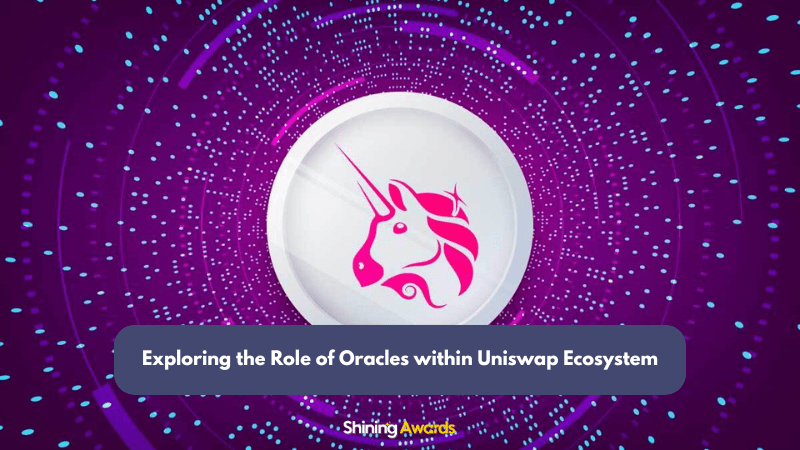Exploring the Role of Oracles within Uniswap Ecosystem
Oracles within Uniswap Ecosystem – Uniswap is a leading decentralized exchange (DEX) in the world of cryptocurrency, known for its approach to trading. Unlike traditional exchanges, Uniswap relies on smart contracts and automated liquidity pools. But a crucial component of its functionality is often overlooked: oracles. Oracles play a vital role in providing accurate price data, ensuring that the system runs smoothly. Let’s delve into the importance of oracles in Uniswap and how they contribute to its success. Comprehending the function of oracles in Uniswap is essential for informed trading. Proficator links traders to educational experts who clarify these complex mechanisms. Gain a deeper understanding through expert insights.
Oracles within Uniswap Ecosystem

Providing Accurate Price Data
At the core of Uniswap’s operation is the automated market maker (AMM) model, which relies on liquidity pools rather than order books. For this system to work efficiently, accurate price data is essential. This is where oracles come in. Oracles are third-party services that fetch and verify data from outside the blockchain. They provide real-time price feeds for various cryptocurrencies, which are then used by Uniswap to adjust prices within its pools.
Without oracles, Uniswap would struggle to maintain correct pricing. Oracles gather data from multiple sources, ensuring it is accurate and up-to-date. This helps prevent issues like arbitrage opportunities, where traders exploit price differences between exchanges. By using oracles, Uniswap can provide fair and reliable trading experiences for all users.
The AMM model on Uniswap adjusts prices based on supply and demand within the liquidity pools. Oracles supply the necessary data to make these adjustments. For example, if the price of Ethereum rises on major exchanges, the oracle will relay this information to Uniswap. This allows the pools to adjust their ratios, reflecting the new market price. Traders benefit from real-time updates, ensuring that their trades are executed at the most current rates.
Enhancing Security and Reliability
Security is a major concern for any financial platform, and Uniswap is no exception. Oracles enhance the security of Uniswap by ensuring that the data used for transactions is accurate. This reduces the risk of manipulation and fraud. Oracles use complex algorithms and multiple data sources to verify the information, making it difficult for bad actors to interfere.
Additionally, oracles are designed to be tamper-resistant. They employ cryptographic techniques to secure data transmission, ensuring that the information received by Uniswap is trustworthy. This level of security is crucial in maintaining the integrity of the exchange and protecting users’ assets.
In the world of decentralized finance (DeFi), the stakes are high. Any inaccuracies or manipulations can lead to significant financial losses. Oracles mitigate this risk by providing verified data. For instance, in the case of a price feed for a volatile cryptocurrency, the oracle pulls data from several reputable exchanges. It then aggregates and verifies this data before sending it to Uniswap. This process ensures that even if one source is compromised, the overall data remains reliable.
Facilitating Complex Financial Instruments
Uniswap is not just about simple trading; it also supports more complex financial instruments like derivatives and lending. These advanced functionalities require precise and reliable data, which oracles provide. For instance, in lending protocols, accurate price data is needed to determine collateral values and interest rates. Oracles supply this data, enabling Uniswap to offer these sophisticated services.
Moreover, oracles play a key role in enabling smart contracts to execute complex functions automatically. They feed real-time data into smart contracts, allowing them to trigger actions based on predefined conditions. This automation streamlines processes and enhances the efficiency of Uniswap’s operations.
Consider a scenario where a user wants to take out a loan on a DeFi platform using their cryptocurrency as collateral. The value of the collateral must be accurately assessed to determine the loan amount. Oracles provide the real-time price of the collateral asset, ensuring that the user receives a fair loan amount. If the value of the collateral drops, the oracle updates the price feed, which can trigger a margin call or liquidation process automatically.
Improving User Experience
User experience is paramount in the competitive world of DeFi. Oracles contribute to a seamless user experience on Uniswap by ensuring that transactions are executed at fair market prices. They provide transparency, allowing users to trust the platform and engage in trading with confidence.
Additionally, oracles help in reducing slippage, which is the difference between the expected price of a trade and the actual price. By providing accurate price data, oracles minimize the chances of significant price changes during transactions, offering users a more stable and predictable trading environment.
Conclusion: The Backbone of Decentralized Trading
In the ever-evolving world of DeFi, staying informed and vigilant is crucial. Always conduct thorough research and consult financial experts before making any investment decisions. Understanding the role of oracles in platforms like Uniswap can help you navigate the complex landscape of cryptocurrency trading with greater confidence and security.
